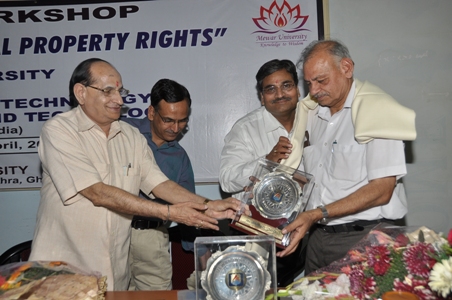Workshop on Intellectual Property Rights held at MU camp office
IPR education is crucial in today’s globalized economy
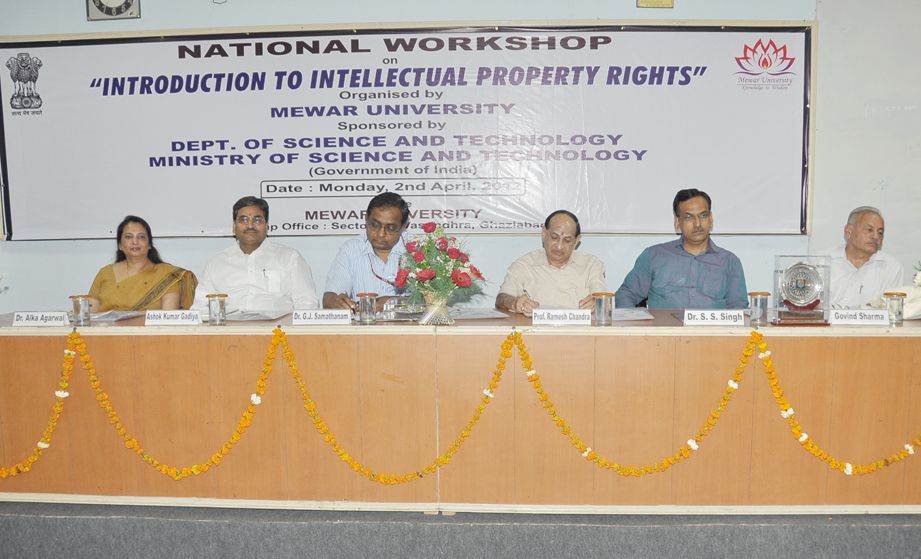
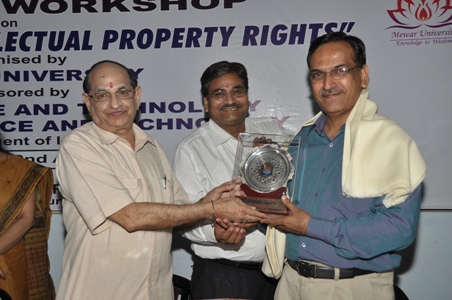
Ghaziabad (April 2): “Living in an integrated economy makes it imperative for all the stakeholders to understand the complete domain of Intellectual Property Rights (IPR) and laws related to patent. Government plays a key role in this domain as 75% of Research and Development comes from the government sector and only 25% from the private sector,” observed Dr. G. J. Samathanam, Advisor and Head (TDT Div), Dept. of Science & Technology, Government of India. He was delivering his inaugural address at a workshop on “Introduction to Intellectual Property Rights”, organized by Mewar University at their Camp Office, Sector-4C, Vasundhra, Ghaziabad and sponsored by Dept. of Science and Technology, Ministry of Science and Technology, Government of India.
CA Ashok Kumar Gadiya, Chairperson, Mewar University welcomed the guests and speakers on the occasion. He stressed upon the relevance of IPR education in order to equip India’s youth with the legal as well as technical aspects of patent.
Professor Ramesh Chandra, Vice Chancellor of Mewar University, underscored the importance of IPR-related courses in university education. He lamented the dearth of educational courses in the IPR domain. He stated that more courses need to be introduced for IPR education to train the workforce of our nation in this domain and private universities can a play a crucial role in this direction.
Dr. S. S. Singh, Assistant Controller of Patents & Designs, explained the difference between product patent and process patent. He also discussed patent specification and elaborated on various aspect of IPR with examples from our daily life.
Mr. Govind Sharma, who heads the IPR division of National Research Development Corporation (NRDC), enlightened the audience on how to turn knowledge into a patentable product. He also explained steps for patent protection right from the creation of a patentable idea to its final success. He also stressed the need to protect innovation and make it market driven.
Er. Ravinder Gaur, Scientist, C/SSOI, DST, discussed the role played by SSOI in the field of IPR. He stressed the need to set up a Patent Information Centre. He further stated that India ranks low on innovation parameters despite having sound fundamental sources or availability of sources. He also pointed out how Indian drug companies are trying to develop alternative to high priced drugs in order to cater to the needs of people with less purchasing power.
Er. Y. D Panwar observed that failure to conduct patentability analysis ahead of an important IP decision is like driving down a road at night without the headlights on. He also said that patent permission is not required for further research and teaching purposes.
Ms. Kanika Malik, Scientist, NISCAIR, discussed various aspects of IPR in the Indian and global context. She explained what happens when a patent is filed as well as what is to be filed and what is not to be filed. She stated that patent is a negative right against copying or duplication. She also pointed out that any technological advancement to the existing art/knowledge having economic significance needs to be patented. However, mere discovery of a new effect of an existing product is not patentable. Also, mere arrangement or rearrangement of an existing device is not patentable.
Dr. N. K. Bhardwaj, Patent Attorney, elaborated on litigation issues associated with patent filing and the jurisdictions of various courts in this regard. He also explained different tiers of patent litigation in India in stages such as pre-grant, post-grant, infringement, revocation, etc.
Dr. Alka Agarwal gave the vote of thanks and stressed the role that education can play in spreading IPR education in India and training the workforce to handle patent related issues in today’s world of globalized economy.
Trending
-
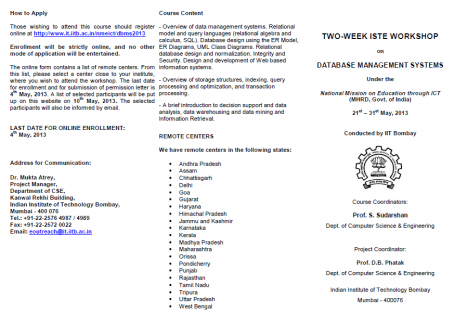
Mewar University to hold two-week ISTE workshop on DBMS
-

MU to hold a National Conference on Mathematics
-

Workshop on Intellectual Property Rights held at MU camp office
-
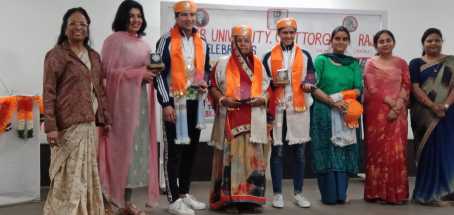
International Woman Day Mewar Celebrated At University Chittorgarh
-

Conference on “Disaster Management with Special Focus on Drought Monitoring and Mitigation”
